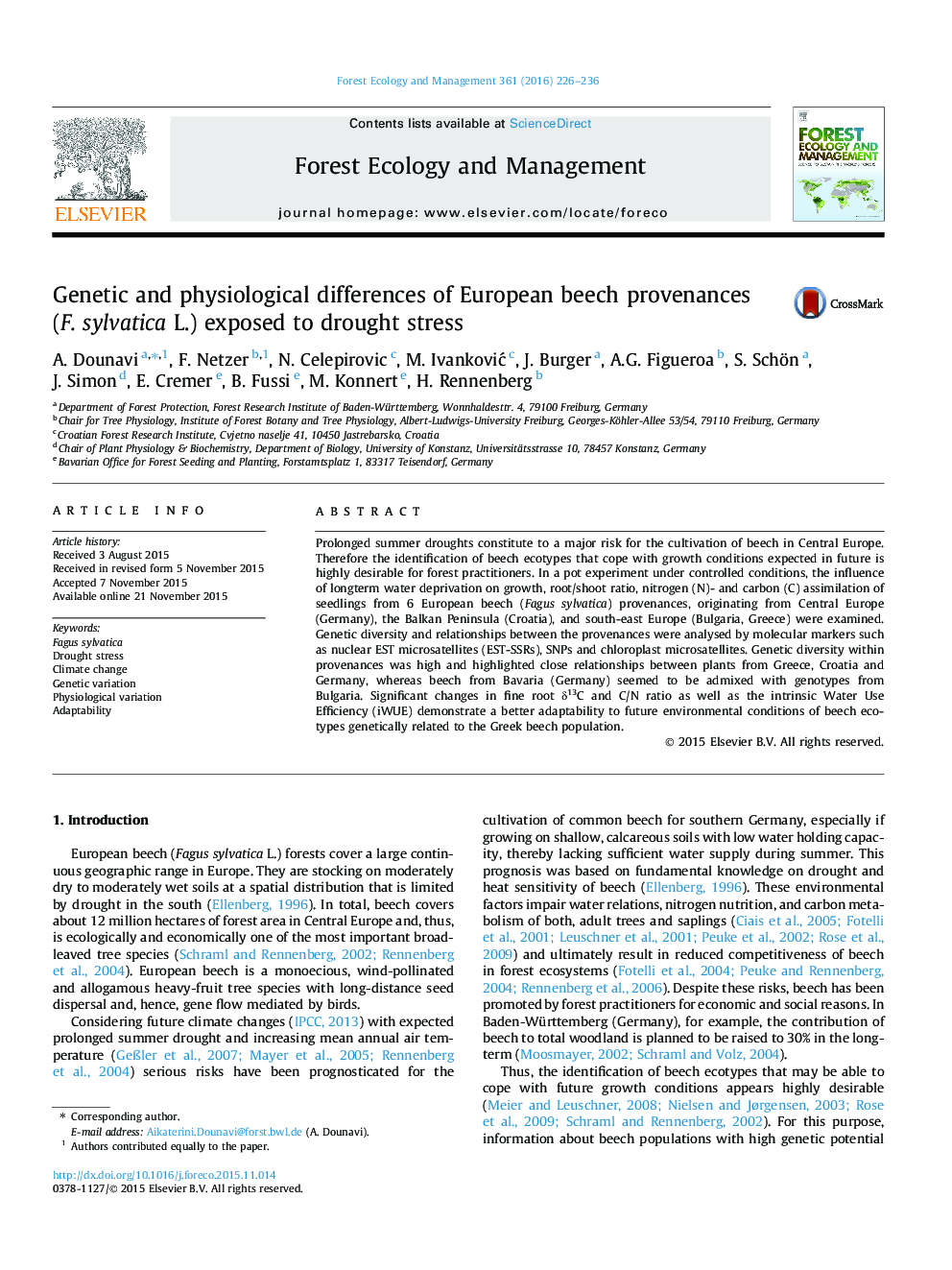| Article ID | Journal | Published Year | Pages | File Type |
|---|---|---|---|---|
| 6542453 | Forest Ecology and Management | 2016 | 11 Pages |
Abstract
Prolonged summer droughts constitute to a major risk for the cultivation of beech in Central Europe. Therefore the identification of beech ecotypes that cope with growth conditions expected in future is highly desirable for forest practitioners. In a pot experiment under controlled conditions, the influence of longterm water deprivation on growth, root/shoot ratio, nitrogen (N)- and carbon (C) assimilation of seedlings from 6 European beech (Fagus sylvatica) provenances, originating from Central Europe (Germany), the Balkan Peninsula (Croatia), and south-east Europe (Bulgaria, Greece) were examined. Genetic diversity and relationships between the provenances were analysed by molecular markers such as nuclear EST microsatellites (EST-SSRs), SNPs and chloroplast microsatellites. Genetic diversity within provenances was high and highlighted close relationships between plants from Greece, Croatia and Germany, whereas beech from Bavaria (Germany) seemed to be admixed with genotypes from Bulgaria. Significant changes in fine root δ13C and C/N ratio as well as the intrinsic Water Use Efficiency (iWUE) demonstrate a better adaptability to future environmental conditions of beech ecotypes genetically related to the Greek beech population.
Keywords
Related Topics
Life Sciences
Agricultural and Biological Sciences
Ecology, Evolution, Behavior and Systematics
Authors
A. Dounavi, F. Netzer, N. Celepirovic, M. IvankoviÄ, J. Burger, A.G. Figueroa, S. Schön, J. Simon, E. Cremer, B. Fussi, M. Konnert, H. Rennenberg,
